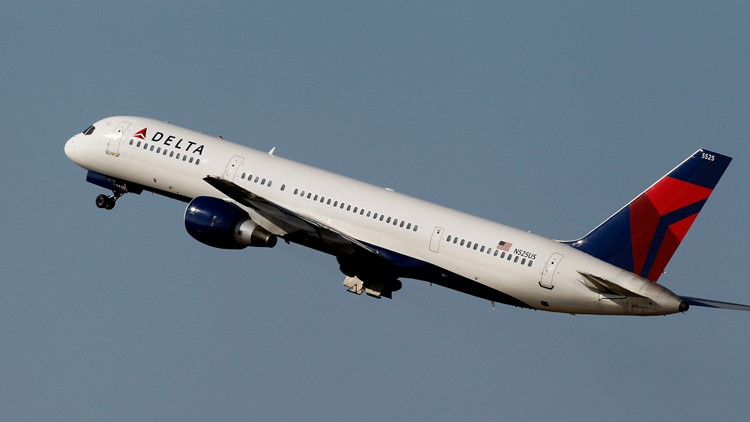DETROIT — The 2024 total solar eclipse will cross the United States on Monday, April 8, and Delta is making sure you can see it in the air.
The airline is offering a special flight from Austin, Texas, to Detroit to see the eclipse in its totality. According to a press release, Flight 1218 will depart from Austin-Bergstrom International Airport at 12:15 p.m. CT (1:15 p.m. ET) and land at Detroit Metropolitan Airport at 3:20 p.m. CT (4:20 p.m. ET).
Delta will fly an A200-300 aircraft, which features extra-large windows.
Not able to make the flight from Austin to Detroit? Delta has other flights available:
- DL 5699: Detroit (DTW) to White Plains, New York (HPN), departing at 2:59 p.m. ET
- DL 924: Los Angeles (LAX) to Dallas-Fort Worth (DFW), departing at 8:40 a.m. PT
- DL 2869: Los Angeles (LAX) to San Antonio (SAT) departing at 9 a.m. PT
- DL 1001: Salt Lake City (SLC) to San Antonio (SAT) departing at 10:08 a.m. MT
- DL 1683: Salt Lake City (SLC) to Austin (AUS), departing at 9:55 a.m. MT
"This flight is the result of significant collaboration and exemplifies the close teamwork Delta is known for — from selecting an aircraft with larger windows to determining the exact departure time from Austin and the experiences at the gate and in the air," Eric Beck, managing director of Domestic Network Planning, said in a statement. "Thanks to teams across the company, the idea of viewing a total eclipse from the air will become a reality for our customers."
To book a flight, visit the Delta Air Lines website.
According to NASA, parts of Michigan will experience the total solar eclipse as it crosses 13 states. Residents in southeast Michigan can view its totality just before 3:15 p.m. Eastern time.
Before it enters the United States, it will cross over parts of Mexico. The pathway continues through North America in Canada, where it will exit the continent on the Atlantic coast of Newfoundland.
"The April 8 eclipse is the last total eclipse we'll see over North America until 2044," Warren Weston, Delta Air Lines lead meteorologist, said in a press release. "This eclipse will last more than twice as long as the one that occurred in 2017, and the path is nearly twice as wide."



